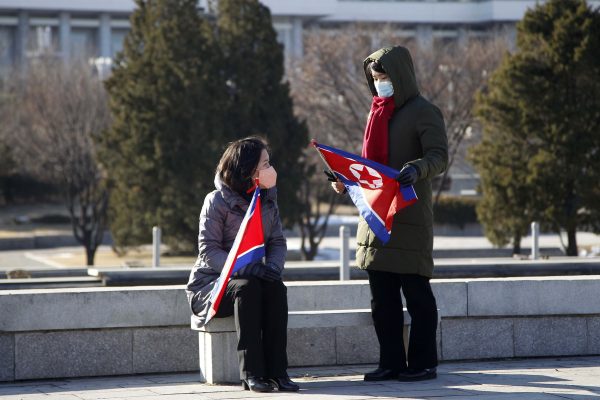
Today, December 10, marks Human Rights Day. For 73 years, the world has celebrated the signing of the Universal Declaration of Human Rights in 1948. We have come so far, but every Human Rights Day, I reflect with a heavy heart on the women in North Korea. They continue to suffer blackmail, corruption, sexual assault, trafficking, and even forced abortions and infanticide. They are consigned to a bleak future if further action is not taken.
Speaking with Timothy Cho, a North Korean escapee in the U.K. with the All Party Parliamentary Group on North Korea, we shared the biggest challenge about working on North Korean human rights: insufficient action being taken. With the systematic, widespread, and grave crimes against humanity in North Korea, proactive steps must be taken to address North Korean women’s rights issues. Here are some preliminary steps.
Democratic countries should provide platforms for women who have escaped North Korea. There are prominent North Korean women sharing their stories through books, media appearances, social media, and even a local election, including Jihyun Park, Hyeonseo Lee, Seohyun Lee, and Yeonmi Park. Just sharing their stories can be an act of empowerment.
However, as the Korea Future Initiative has uncovered, there are “barriers to the participation and leadership of young North Korean women in the human rights movement.” These barriers should be dismantled. According to Jiyeon Kim, a North Korean escapee based in the United States, “the barriers that North Korean escapee women face in leadership and participation in the human rights movement stem from discrimination against women and North Korean defectors in South Korea.” South Korean policymakers can play a part by genuinely addressing these issues. Kim further elaborates that steps must be taken “to systematically educate and train North Korean women who have an active will to participate in human rights activities so that they can become leaders for North Korean women’s human rights.”
We can all contribute by giving women escapees from North Korea a more prominent role on speaking panels (“manels” should be a thing of the past), in publications and books, and in the media. They should be encouraged to start their own organizations highlighting North Korean women’s rights and speaking to the abuses they endured.
At the United Nations, U.N. Women has made efforts to include North Korean escapee women when addressing violence against women. Just last month, they hosted North Korean escapees to launch their 16 Days of Activism against Gender-Based Violence. However, more action is necessary. Roberta Cohen, co-chair emeritus of HRNK and former U.S. deputy assistant secretary of state for human rights, recommends that “When UN humanitarian staff are on the ground again, they play a more active role in assisting North Korea to report on and comply with the Convention on the Elimination of All Forms of Discrimination against Women, to which it acceded.” In doing so, North Korean women should have a prominent role to play in the conversation.
In the United States, the North Korean Human Rights Act of 2004 and the reauthorization of 2017 do address North Korean women’s rights. However, North Korean women escapees are not explicitly included as a group to support with funding and the Special Envoy for North Korean Human Rights Issues’ responsibilities do not detail women’s rights issues specifically. In the 2022 reauthorization, specifying financial support for North Korean women escapees and detailing women’s rights issues as a part of the Special Envoy’s mandate would strengthen the North Korean women’s rights movement.
Civil society organizations working on North Korean human rights mainly operate based on grants awarded for specific projects. With the South Korean government’s defunding of civil society working on North Korean human rights, this responsibility has largely fallen on funding organizations in the United States. U.S.-based grant-providing institutions can take a stand by calling for grants specifying North Korean women’s rights issues, whether for activism or research. There have been noteworthy efforts by academics and NGOs to publish reports on North Korean women’s rights, but there is room for greater development and focus.
Today on Human Rights Day, we in the United States and our international partners must remember the women of North Korea and place them center stage until freedom and justice can be achieved.
Moving North Korean Women’s Rights Issues Center Stage on Human Rights Day
Source: Frappler

0 Comments